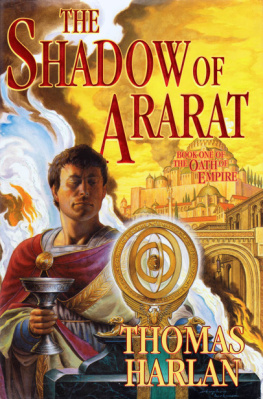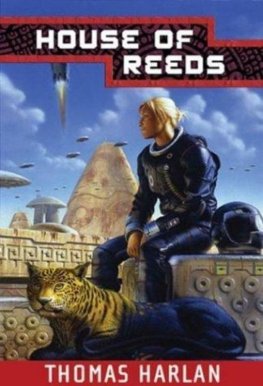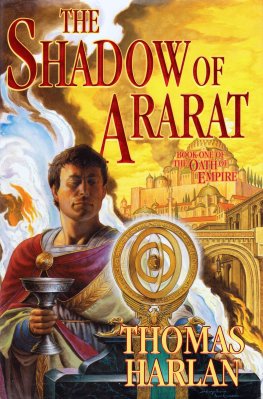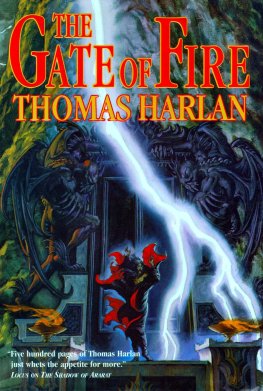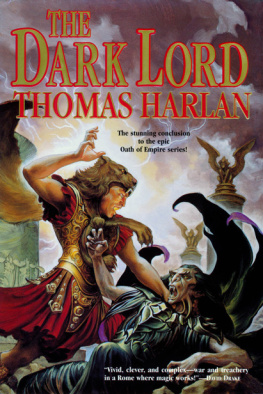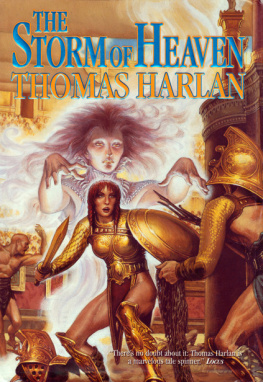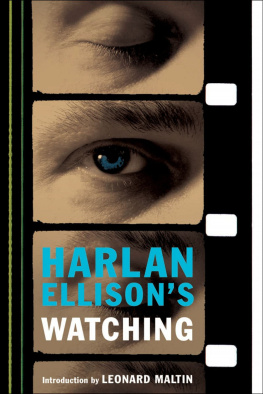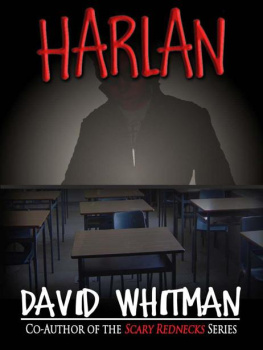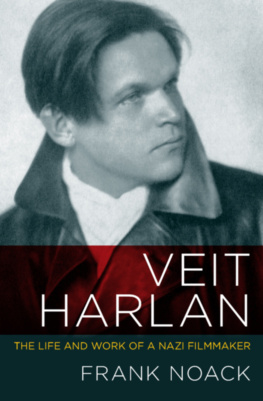Thomas Harlan - Shadow of Ararat
Here you can read online Thomas Harlan - Shadow of Ararat full text of the book (entire story) in english for free. Download pdf and epub, get meaning, cover and reviews about this ebook. genre: Science fiction. Description of the work, (preface) as well as reviews are available. Best literature library LitArk.com created for fans of good reading and offers a wide selection of genres:
Romance novel
Science fiction
Adventure
Detective
Science
History
Home and family
Prose
Art
Politics
Computer
Non-fiction
Religion
Business
Children
Humor
Choose a favorite category and find really read worthwhile books. Enjoy immersion in the world of imagination, feel the emotions of the characters or learn something new for yourself, make an fascinating discovery.

- Book:Shadow of Ararat
- Author:
- Genre:
- Rating:4 / 5
- Favourites:Add to favourites
- Your mark:
- 80
- 1
- 2
- 3
- 4
- 5
Shadow of Ararat: summary, description and annotation
We offer to read an annotation, description, summary or preface (depends on what the author of the book "Shadow of Ararat" wrote himself). If you haven't found the necessary information about the book — write in the comments, we will try to find it.
Shadow of Ararat — read online for free the complete book (whole text) full work
Below is the text of the book, divided by pages. System saving the place of the last page read, allows you to conveniently read the book "Shadow of Ararat" online for free, without having to search again every time where you left off. Put a bookmark, and you can go to the page where you finished reading at any time.
Font size:
Interval:
Bookmark:
Thomas Harlan
Shadow of Ararat
DELPHI, ACHAEA: 710 AB URBE CONDITA (31 B.C.)
The Greek woman raised her arms and her face, pale and regal, was revealed as the purple silk veil fell away. Deep-blue eyes flickered in the dimness of the narrow room. A mass of raven hair cascaded down over her pale shoulders. The smokes of the crevice rose up around her as she stood in supplication. Far away, behind her, the low beat of a drum echoed in the sun-baked little plaza in front of the temple. She waited, patient and calm.
Finally, as the irregular drumming settled into her blood and she grew light-headed in the haze of bitter-flavored smoke, a figure stirred in the darkness beyond the glow of the brazier. Strands of long white hair gleamed. Withered fingers brushed against the lip of the corroded bronze tripod. A face appeared in the smoke, and the queen barely managed to keep from flinching back. Unlike the gaudy display at Siwa, here there was no grand chorus of priests in robes of gold and pearl, no vaulting hallway of stupendous granite monoliths, only a dark narrow room in a tiny building on a steeply slanted Grecian hillside. But at Siwa, when the oracle spoke, there had been no stomach-tightening fear.
Here the Sybil was ancient and wizened, her eyes empty of all save a sullen red echo of the flames now leaping in the pit below. The mouth of the crone moved, but no sound emerged. Yet the air trembled and the queen, to her utter horror, felt words come unbidden to her mind, forming themselves pure and whole in her thought. She flinched and staggered back, her hands now clawing at the air in a fruitless attempt to stop the flood of images. She cried out in despair. The empty face faded back into the darkness beyond the tripod and the crevice. The fire sputtered and suddenly died.
The Queen lay, weeping in bitter rage, on the uneven flagstones as her guardsmen entered the chamber to see what had befallen her. The vision had been all that she desired, and more.
SOUTH OF PANOPOLIS, THEME OF EGYPT: 1376 AB URBE CONDITA
A boy walked in darkness, his head outlined against the sky by the dim radiance of the River of Milk. His skinny legs were barely covered by a short kilt of rough cotton homespun. He scrambled to the crest of the dune. Beyond it the western waste spread before him cold and silver in the moonlight. A chill wind, fresh with the bitter scent of the desert, ruffled his shirt and blew back the long braids from his face. Breathing deep, he felt his heart fill with the silence. He smiled, broad and wide, in the darkness. Laughing, he spread his arms and spun, letting the huge vault of heaven rotate above him. The great moon, a dazzling white, filled the sky. The river of stars, undimmed by clouds, coursed above him, the Zodiac forming in its eddies and currents.
He sighed deep and laughed again. He sprinted along the ridge, feeling his muscles surge and thrust as he hurtled forward. Gaining speed, he lengthened his stride and kicked off hard as he reached the curling lip of the dune. For a moment, the wind rushing past, he was suspended in the starry dark. His long braids lashed back as he fell through deep shadow.
The water was a slapping shock as he struck the surface. He plunged through broiling murk and felt his feet strike against the sandy bottom. Surging upward, he breached, throwing his head back. The stars glittered down through the arching palms, and Dwyrin rolled over and stroked easily to the reed-strewn shore. Gripping a low branch, he pulled himself from the inlet of the Father Nile. He squeezed muddy water from his braids and coiled them at his shoulder. His tunic, sodden and caught with long trails of watercress, he stripped off. Cold wind brushed over him but he did not feel it.
Pushing through the tall cane break at the edge of the inlet, he looked for a moment out across the broad surface of the Nile. Near a half mile of open water, running silent under the moon, to the far bank. There he could pick out the lights of the village, dim and yellow in the night. His right hand checked absently to see if the oranges were still secure in his cord bag. They were and he took to the trail leading south along the margin of the river.
Beyond the narrow strip of fields and palms, stones and boulders rose from a long tongue of hills that arrowed out of the waste into the Nile. Here, where the river had long ago curved about an outcropping, men of the Old Kingdom had raised a siege of pillars and great monoliths. Dwyrin clambered up through the debris that marked the fallen northern wall of the temple. A looming shape hung over him, ancient face blurred by the desert wind. Swinging over the massive stone forearm, Dwyrin squeezed through a small space beneath the fallen statue. Within the ancient temple, long rows of pillars arched above him. The wide stone passages between them were littered with blown brush and sand. Dwyrin picked his way to the great platform that fronted the temple. From it three great seated figures stared north, down the Nile, to the distant delta and their realm of old.
At the center reigned the bearded king, his arms crossed upon his chest, broken symbols of divinity and rule held in massive sandstone hands. His eyes were dark as he looked to the north and the havens of the sea. To his left sat the languid cat-queen, his patroness, her face still and silent in an ancient smile. One great pointed ear was sheared off, showing dark-grained stone beneath the smooth carving.
Her, Dwyrin avoided, for her long hands were tipped with claws and she always seemed cool and aloof. Instead, he turned to the rightmost statue, that of the mightily thewed man with the head of a hawk. He climbed up, over the pleats of the old gods kilt, and sat in the broad curving lap, his legs swinging over the edge. Beneath him the Nile gurgled quietly.
He sat and peeled his oranges, one by one, and waited for the return of Ra from the underworld. He ate them all, juices staining his fingers and lips. They were tart, and sharply sweet.
Dwyrin reached the edge of the school grounds with his breath coming in long ragged gasps. His sandals, tied around his neck by their thongs, bounced against his back. He vaulted the low fence bordering the vegetable plots without breaking stride and rounded the corner into the sta-bleyard. Distantly, over the whitewashed rooftops of the school, he could hear the morning chanting of the monks. Ra was only just over the horizon, but he had lingered too long at the old temple, skipping broken pieces of shale from the platform into the dark green-brown waters. The stable boys looked up in amusement as he ran across the hard-packed mud of the yard to the rear garden gate.
Sprinting to the wall, he leapt up and caught the top of the bricks with both hands. With a heave, he swung up and over, landing hard on the low grass inside and rolling up. He dodged through the long row of columns that skirted the garden, sliding to a stop at the door to the junior students dormitory. Within he heard faint grumbling and the snores of the Nubian boy at the end of the bunk line. Glancing both ways down the colonnaded breezeway, he eased the door open and slipped inside. He stripped off the tunic, now dry, and hung his sandals on the pegs by the door.
The thick woven cane door at the far end of the hall swung open and the sharp clack of the journeyman masters cane rapped on the pale rose tiles. Dwyrin froze by the doorway. Master Ahmet, he saw, had turned back to say something in passing to the master of the older boys section. He had not yet looked fully into the room.
Dwyrin dove to the floor and rolled under the nearest bunk. In it, one of the Galatian students turned over in his sleep. The rapping of the masters cane resumed and the first sharp slap of cane stick on bare foot resounded from the end of the hall. The boy nearest the far door woke, groggily, and rolled out of bed. Dwyrin slid forward under the bunk and on to the next.
Font size:
Interval:
Bookmark:
Similar books «Shadow of Ararat»
Look at similar books to Shadow of Ararat. We have selected literature similar in name and meaning in the hope of providing readers with more options to find new, interesting, not yet read works.
Discussion, reviews of the book Shadow of Ararat and just readers' own opinions. Leave your comments, write what you think about the work, its meaning or the main characters. Specify what exactly you liked and what you didn't like, and why you think so.

